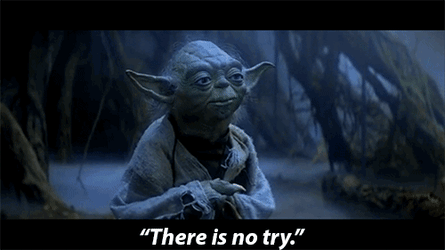
How to Think Like a Billionaire

We all admire billionaires, but why? Is it for their money, their bold ideas, their determination, or their non-wavering conviction? Is it all the above? Perhaps.
They seem to have unfettered advantages that give them better entrée to opportunities allowing them instant access to people, places, and ideas that many of us only dream of.
The funny thing is that all of us dream. So, the real question is, do billionaires just dream differently?
The simple answer is, yes. They do.
Cutting to the chase, most of us tend to dream with the hope of that dream becoming reality. We tend to place our dreams second, behind our ingrained need to survive. Or, we’re taught to dismiss dreaming altogether as silly, whimsical, childish, or a waste of valuable thinking and time.
But billionaires… they put dreaming first. Call it what you will, dreams, desires, goals, ideas, wishes… but what billionaires don’t ever call their dreams is hope.
To them, hope is like gambling, hoping the wheel of fortune lands on your lucky number.
Instead, they design, construct, map out, and orchestrate their objectives into reality by crafting every aspect of their desired outcome.
In this way, they manifest the outcome they wish to achieve, or, to put it another way, they dream exactly how the result will look, feel, and taste.
How they accomplish this is simple. They already see themselves at the finish line, their desired outcome.
Though, desire alone will not yield a wish. They know that in order to reach their objective, they must take action, and within these pages is the key to unlocking your own personal power to create whatever you most desire.
The first step is to start by choosing to ignore the practices of conventional wisdom, and to start trusting and following your own unique path.
In other words, the standard conventions of rational thinking is like a box. This box limits how big or bold your ideas can become. In this way, it inhibits ideas, desire, and growth.
Intuitive thinking, on the other hand, is divergent. It’s massively powerful because it has no box of limitation.
Manifesting

Manifestation is simply bringing something into being: Materialization.
Also, and this is important… Desire cannot be intellectualized. Since it comes from nothing, it cannot be quantified, nor can it be understood or dissected. It just is. Desire only requires that you have faith and be open to accepting that everything you desire comes from within you, and only from you.
Think of it this way, where you are now has gotten you this far, to where everyone else is. Perhaps you’ve even gotten a little ahead of the game, or maybe a little behind.
Disruptive thinking, however, is an entirely new level, because it’s something you design. It’s a leap of faith that’s no more than a rite of passage, evolving you into a more natural state of who you should be. And because dreaming swims in the waters of the unknown, many never push themselves to dream big enough to reach their true and full potential.
The reason many don’t think boldly enough is due to their limiting beliefs. These beliefs tell us not to push too far or we will fail.
“The fault, dear Brutus, is not in the stars, but in ourselves.”
~ Julius Caesar
Change Your Thinking
It’s that simple. It starts by deciding not to see yourself from an outside perspective, but instead, seeing yourself from within. This means no longer comparing yourself to others, not judging yourself harshly when things don’t go as planned, and not comparing where you presently are to the successes of others. None of that serves any beneficial purpose when it comes to dreams, desires, or manifesting something truly amazing.
I’ll share a secret with you through years of research. Billionaires and young children, typically between the ages of two to ten, think in almost the same way. Every thought, idea, and inspiration comes from their imagination. Everything that is thought of has the potential to become reality.
Trains, planes, cars, electricity, radio, television, computers, and cellular phones, all were once someone’s imaginative thoughts. These ideas became reality. Ergo: Imagination becomes reality.
Take notice of two important things at play here:
One is that these dreamers were given the freedom and latitude to explore and cultivate their own unique ideas and imagination, even when it didn’t make sense to others. And two, their role models, mostly parents, encouraged, and instilled within them newer, personal, and fantastical ways of looking at the world.
But wait! Not all those who were billionaires came from such supportive households. Oprah Winfrey struggled. JK Rowling also struggled.
So, how did people like these, rise above and become the great Disrupters they are today?
The answer is that they saw opportunity in everything, rather than seeing lack. They used these sparks of opportunity as steppingstones to envision, design, create, and invent what they ultimately wanted, and who they ultimately became.
Most importantly, they stayed true to who they were even when they got push-back, ridicule, or objections from the outside. They never surrendered their idea of who they were, or what they were capable of, even when times got tough or scary.
They knew who they were, pursued their desires, and remained true to their unique vision.
Yes, there were times when doubt appeared, because when it’s tough, lonely, and cold, it feels like the journey will never end, or when they experienced lack, it was like the road is just not going to be their friend. And when that kind of doubt creeps in, it looks like everyone else has it so much easier.
But having a strong, unique VISION keeps them moving forward because it’s something personal that drives their ideas through even the toughest of times, compelling them to pursue something unknown. In this way, all of them are able to maintain an unrelenting conviction of their beliefs.
There will be failure. We all experience it. There will be times when things don’t go the right way, and it feels like you’ve invested all of your time and energy into something that ultimately didn’t work out.
But ask yourself, where are you now? How much time, energy, and effort have you really invested into your biggest dreams? Should you give up and just do something that’s easier? Or should you find a way through?
When failure arises, the key is in how to pivot. In his book “The First Billion is The Hardest,” T. Boone Pickens shares how he invested $2,500 in 1956, turned it into $750 million, loses that, and turns it into $4 billion.
Being blackmailed by the railroad companies with higher shipping and transportation fees for his oil, JD Rockefeller had to figure out a way to lower costs or he would be out of business. He realized that pipelines would be the most efficient and profitable course of action.
Historically, innovation is typically an improvement on an existing concept. The steps to create a new iteration of something is a funneling down process, honing and refining while creating the next generation of an existing product. It has an end game. Typically for the sole purpose of monetary gain.
Disruptive thinking on the other hand has no end game. It’s usually a result of someone with an idea, pulling at a thread to see where it leads. It becomes a quest, a pursuit to explore and discover something new. The Disruptor doesn’t always know if his exploration will lead anywhere.
The unknown will always be risky. It is indeed easier to just get a 9-5 job that seems more secure. And if that’s you, then that’s okay. There are no judgements here.
But for those who feel they have more inside of them, more to offer, and are not satisfied with the status quo, then learning to explore the creative adventures of the unknown, to truly see what you are capable of, may be the path for you.
A simple test is this:
If something inside of you is calling and pushing you to explore, investigate, create, or see what’s out there, then you might want to pull at that thread and see what happens, and what you are really capable of.
The Limits of Ego

Ego is another deterrent that can keep one stuck. And here’s the interesting part. People often think billionaires have the biggest egos, and for some that’s true. But in order to dream at the highest level, one cannot have ego during the creative developmental process. It will only inhibit and stifle bigger thinking.
Ego is a suit or dress you wear that you put on to show others who you are. But that’s not who you really are. It’s a disguise you don in order to “fit in,” to be recognized, validated, and praised for “being you.” Actually, you are being whom you want others to perceive you are.
And ego is time-consuming. It’s exhausting because this constant ego never lets you rest for one moment. And many are afraid to let go of ego, because, once you drop your guard and let your ego (shield) fall, people might then see the real you. And you might not be able to handle that.
That’s why intuitive thinking is so freeing. It doesn’t trap one inside the ego, and instead, allows one to remain open to express, explore, and discover, without caring about how the world sees them.
Fantasy and imagination are something we have been conditioned to have blind spots for. It’s not that we can’t see it, we’ve just been conditioned not to accept it. Yet as a child, we have no blind spot, because we have no ego. When we’re young we use imagination to create our world. Adults, however, condition their children to learn that this imaginative world is not as important as the “real world.” This is not productive to the intuitive mindset. And after years of hearing this type of repeated conditioning, most children begin to give their imagination less and less importance, eventually forgetting how to use its powerful magic, value, and amazing purpose.
Billionaires, on the other hand, seem to intuitively know that dreaming and imagining are vital to their success, and continue to foster and cultivate this powerful gift.
A key technique when imagining, is that the situation you envision feels very real to you. And secondly, that you are not merely observing as a spectator. A good way to approach this is to experience all the emotions and feelings that go along with the situation until it becomes a vivid reality.
It’s not enough to merely think about the thing you desire, you must feel all the sensations and emotions that go with that desire as if you’re already experiencing the situation.
Let your emotions and feelings help to shape your mood, and paint as realistic a scene as possible, just as a painter does. Dreaming is all about the details.
A simpler way to understand how to put yourself in this frame of mind is, when you are hungry you actually think about what you want to eat, but you do this on a much deeper level. You imagine yourself actually tasting that food to see how that feels to you. What you’re doing is putting yourself directly into that state of experience as if it were occurring right now.
KEY: In order for this to work you must see it from the end. In other words, living in that moment as if it was happening right now.
A common mistake many people don’t realize they make when manifesting is that they view their desired objective as if they were merely a spectator watching a movie. The secret is to BE in that movie. To look at the entire situation from your own eyes as if you were the starring actor playing a part in that movie, and not just as an observer.
Or, as if you were in a virtual reality game. Everything that happens to and around your avatar is from your perspective. That’s how you should envision your dreams and desires.
Failure can most definitely occur if you fail to accept the truth of your assertion.
Some reading this article may wish to poke holes in the fabric of this philosophy, perhaps to see how well woven and solid this idea is. However unbeknownst to them what they are unconsciously doing is setting themselves up for failure because they choose to believe in the limits of something rather than the boundless possibilities of a thing. They are planting seeds of doubt which will inevitably sprout, proving themselves right, while being left with nothing to show for their righteousness.
However, having faith in the unseen is the hardest thing to master. People will say they have faith in a god they cannot see, yet when asked to have faith in themselves, to truly have deep conviction in themselves, they have a hard time maintaining their self-confidence.
Science tells us we can’t see electricity, the air we breathe, or the energy we use, but we have faith that they exist. We faithfully rely on them every day.
Yet when it comes to our own personal desires, it’s hard for someone to imagine having something he’s never had before, though they have no problem fantasizing about it.
Interestingly, People have no hesitation seeing lack, scarcity, or even debt. Why is this so much easier for one to imagine? Perhaps it’s because many of us have already experienced it, or may know someone who has, so it’s not that hard to picture it as a possible reality.
Another way to look at this is something Werner Earhart used to say, “Reality, good or bad, is what you say it is. It doesn’t exist until you make it so.”
This also means that you are responsible for that reality, and two, things don’t happen to you, they happen because of you.
If you stub your toe getting up in the morning, you can choose to make that the determining factor for how the rest of your day will play out, or you can decide to pivot to a more positive mindset of your own choosing.
And the word of the day… PRACTICE!

When we want a raise, we practice how that dialogue with our boss will play out. We imagine the conversation, where we are, what we are saying, what the boss might say, and how to counter any apprehension. We practice seeing our desire fulfilled.
Attorneys practice before actually litigating in front of a live jury. They imagine already being in a courtroom, the lighting, the people observing, the defendant, the opposing attorneys, the Judge, the air in the room, what they will wear, everything.
Olympic and professional athletes go over a competitive event or game in their minds over and over again, envisioning how they will perform, what the arena will be like, the crowd, the noise, the weather (if it’s outdoors), the other team, the referees, and even how their own team members will perform.
Actors, directors, writers, authors, and screenwriters, all see the scene as if it is already happening. They imagine what the characters will wear, say, and do. They can already imagine in great detail, the scene playing out before them.
Musicians practice over and over again, eventually adding nuances to enhance the music, and new techniques to take their ability up a notch.
When we go on errands, we picture how we will get to our destination, what the traffic will be like, what items we will procure, how big the shopping lines will be, and how crowded the parking lot is.
We already know how to imagine. Yet few take the time and effort to conjure, imagine something greater, something bigger, something they desire.
In order to cultivate a strong and powerful mindset, like the billionaire, you must begin practicing over and over again, just like an athlete or musical performer, until it feels real to you; as real as if you’re already there enjoying the fruits of your labor (and vision).
Society has given you the gift of lack mentality and scarcity. I would suggest returning or re-gifting it. Reality is what you choose, not what life hands you.
But the only way you are going to know for sure is to do it. Not try, not hope, not want, but do.
